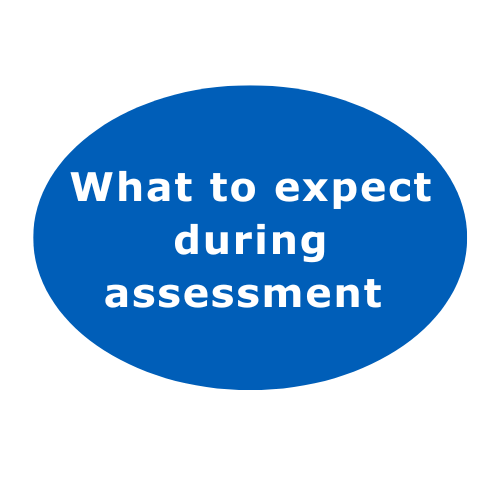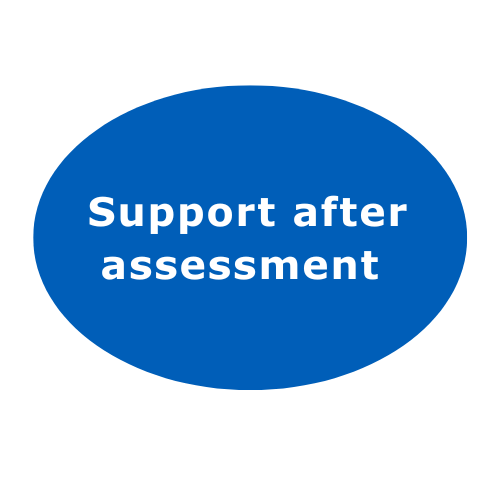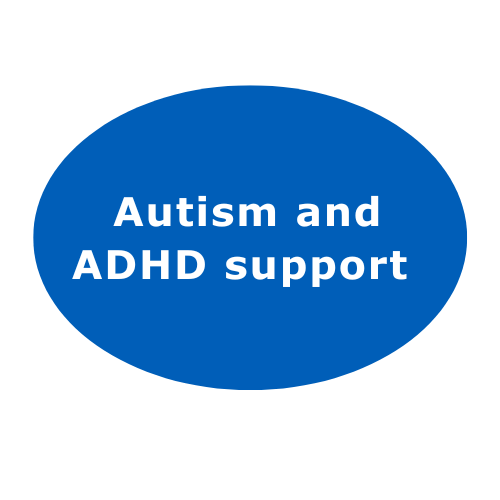General questions
At the first appointment it is important for you to bring your child. This means we can meet them, talk to them, complete some activities or play with them – this all forms part of our assessment.
However there can be some appointments where you might just want to focus on talking with the doctor. For these, it might be better if your child remains at school/nursery or home. We will let you know in advance if it will be beneficial for your child to be there.
Yes! The appointments can be long and it might be nice for your child to have familiar things with them to keep them entertained. This will not affect the assessment process as it is important for us to understand what interests your child and how they play.
During the appointment, we may use specific toys and items to assess your child’s development and behaviour. We will let you and your child know if and when these will be needed.
We need your consent prior to starting your child’s assessment. This shows that you understand why we are assessing your child and what will happen during and after the assessment.
We also seek consent for us to obtain and share information with other agencies that support you and your child – such as your child’s school. This helps us understand your child’s strengths and difficulties in different contexts and environments.
If you are unsure about giving consent, please contact us to discuss this further as this may impact on whether the assessment can go ahead.
ADHD
Attention deficit hyperactivity disorder (ADHD) is a neurodevelopmental condition. There are three subtypes: ‘inattentive’, ‘hyperactive’ and ‘combined’.
The symptoms of ADHD include:
- Inconsistent attention (struggling to focus on something expected of the child or young person but may hyper-focus on something else).
- Hyperactivity (fidgety and finding it difficult to stay still when needing to)
- Impulsiveness (frequently suddenly doing or saying things without considering the consequences)
People with ADHD may also find it difficult to organise, plan, start tasks, finish tasks, and self-regulate.
As part of development, children typically will take time to learn how to listen, concentrate and follow expectations in everyday activities such as listening to a story, sitting down to dinner, playing with their friends. As a child grows, they may find it difficult to develop these skills at the same rate as their peers. This may suggest that further assessment in these areas could be considered. ADHD is often diagnosed in childhood but sometimes in adolescence or later.
For an ADHD diagnosis, characteristics must be present in two or more settings (for example, home and school) and must not be better explained by another diagnosis. As we are all different, some children may present with inconsistent attention, hyperactivity or impulsivity but be below the threshold for a diagnosis.
Before receiving a diagnosis of ADHD, it is important that your child has a detailed assessment completed by a specialist paediatrician.
They will seek detailed information about your child’s ADHD symptoms, behaviours, emotional difficulties and school progress. Parents, carers and teachers will be asked to complete medical questionnaires (also called rating scales).
They may also have to undertake a Qb test.
The doctor can then make a diagnosis of ADHD if your child meets the diagnostic criteria set out in medical manuals: The Diagnostic and Statistical Manual of Mental Disorders, Fifth Edition (DSM-5) or International Classification of Diseases 11th Revision (ICD 11).
To meet the criteria for a diagnosis of ADHD, your child must have had ADHD features before the age of 12 years, for at least 6 months, present in more than one setting (usually home and school), and with ongoing significant impairment.
There are no specific blood tests or brain scans recommended to prove the diagnosis of ADHD. Your child’s doctor may carry out certain tests, as required, depending on your child’s clinical condition or difficulties.
Autism (ASD) assessment
Autism spectrum disorder (ASD), often known as autism. Autism is a lifelong developmental condition. It affects how a person interacts, builds relationships, and takes in the world around them.
An autistic person may have difficulties with verbal and nonverbal social communication skills that affect their daily life. They may struggle to interact with other people, cope in social situations and form or maintain relationships. Autism is also associated with restricted and repetitive behaviours, such as finding it hard to cope with changes, repetitive movements, fixated interests and sensory processing differences.
They’re often present from a young age, but people may not identify them until later in life. These may become apparent as the social demands increase, or conversely may be masked by learned strategies as a person gets older.
An autism diagnosis doesn’t mean there is anything ‘wrong’ with a person. While differences in social communication and interaction can bring challenges, such as coping at school, autistic people also have many strengths. With understanding and the right support, they can lead fulfilled and meaningful lives.
How to best manage and live with autism is different for each individual. A diagnosis should not be required for interventions that support your child, but it will help your child and others understand the way they think and perceive the world.


